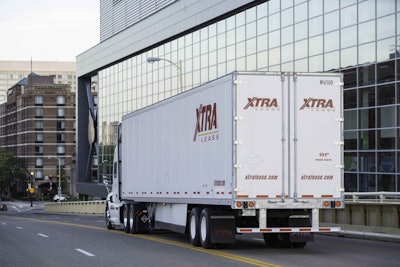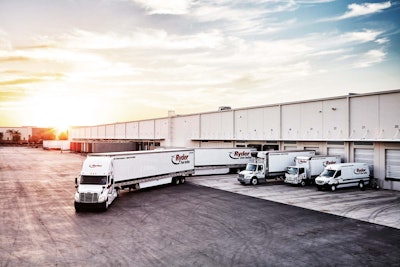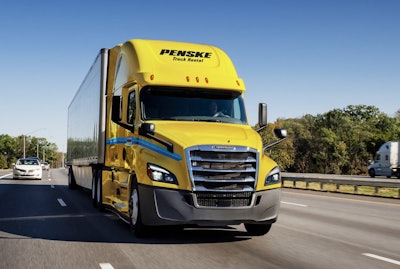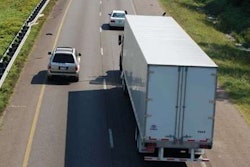
Note: This is the first in a two-part series that looks at the advantages of leasing and buying a truck and/or trailer. Part two, which looks at the baked-in features of a full-service lease and asset disposal, will publish Thursday.

Depending on various business conditions – including the company’s maintenance infrastructure and cash position – both can be advantageous for multiple reasons, but determining the best path isn’t always easy or obvious.
A survey conducted last year by the National Private Truck Council (NPTC) showed that 52 percent of fleets lease at least some Class 8 equipment, a figure that has climbed each of the last three years – from just over 30 percent in 2014 and 2015, to almost 40 percent in 2016 and 45 percent in 2017.
Penske Truck Leasing Senior Vice President of Sales Jim Lager says the decision of whether to buy or lease equipment isn’t always about “having to do one or the other,” adding it’s more about weighing and balancing the benefits of truck ownership or entering into a lease agreement.
Financial considerations
Leasing provides financial flexibility in that it doesn’t require the same upfront cash commitment as buying.
“Instead of tying up millions of dollars in a rapidly depreciating asset … you put that to work somewhere else in your business,” Lager says. “You let us own the truck and depreciating assets. You let us maintain them and keep them running for you.”
XTRA Lease Senior Vice President Steve Zaborowski notes most companies have capital needs pulling them in multiple directions and that leasing allows fleets to add equipment while still investing in those other avenues.
“Leasing gives you the flexibility to match up with shipper logistics contracts,” he says.
“A lot of [the decision to lease] is freeing up capital for appreciating assets, whether it’s manufacturing or real estate,” adds Todd Berger, Paccar Leasing Company’s director of national accounts. “Do you put your capital into depreciable assets or do you put your capital into something that’s going to help you drive more revenue within your business?”
Leasing also keeps companies off the truck title, a move that currently allows them to keep associated debt off their books.
“You don’t have the debt on your balance sheet and you don’t have the asset on your balance sheet,” says Bill McMenamin, Navistar President of Financial Services and Treasurer. “What you would disclose on your financial statement is that you have leases and the future lease payments under the lease.”

“You stroke a check for [the truck payment] on the first of the month … and you ball a tire a day later on the road. You stroke a credit card this time for $1,000 for a tire that should have cost you a couple hundred bucks,” Lager says. “If you’re under a full-service lease, you’ve already paid for it in the lease payment. You’re not paying again for those types of things. Or when it’s time for the licensing to come due. It’s all those things.”
Berger says next generation company owners are often more open to leasing because they either see the tax and accounting benefits, or they recognize all the expenses associated with acquiring a depreciable unit and building the infrastructure to support it.
“It’s changed significantly with time and people realize the truck has got to be a means to an end,” he says. “It’s got to be something we can spec, we can use and then we can turn in.”
Tax considerations
Recent tax changes have favored lease agreements, an advantage previously sided with buyers.
NationaLease Senior Vice President of National Account Sales Joe Gallick says companies in a strong cash position often favor purchasing in order to take advantage of accelerated depreciation, which reduces their taxable income.
“Typically, those companies either have a maintenance core competency or they have a partnership on the maintenance side and they feel strong enough about to be able to manage that,” he adds.
However, recent tax reform now allows for 100 percent bonus depreciation of company assets at a 21 percent corporate tax rate. Prior to the 2017 tax change, that equipment was written off at a higher tax rate – 35 percent. The end result is a smaller tax benefit for buying an asset.
“If they could not get a tax benefit from depreciation … leasing may be an option for them because the lessor would get that tax benefit and pass that benefit down to the lessee in the form of a lower payment,” says McMenamin.










